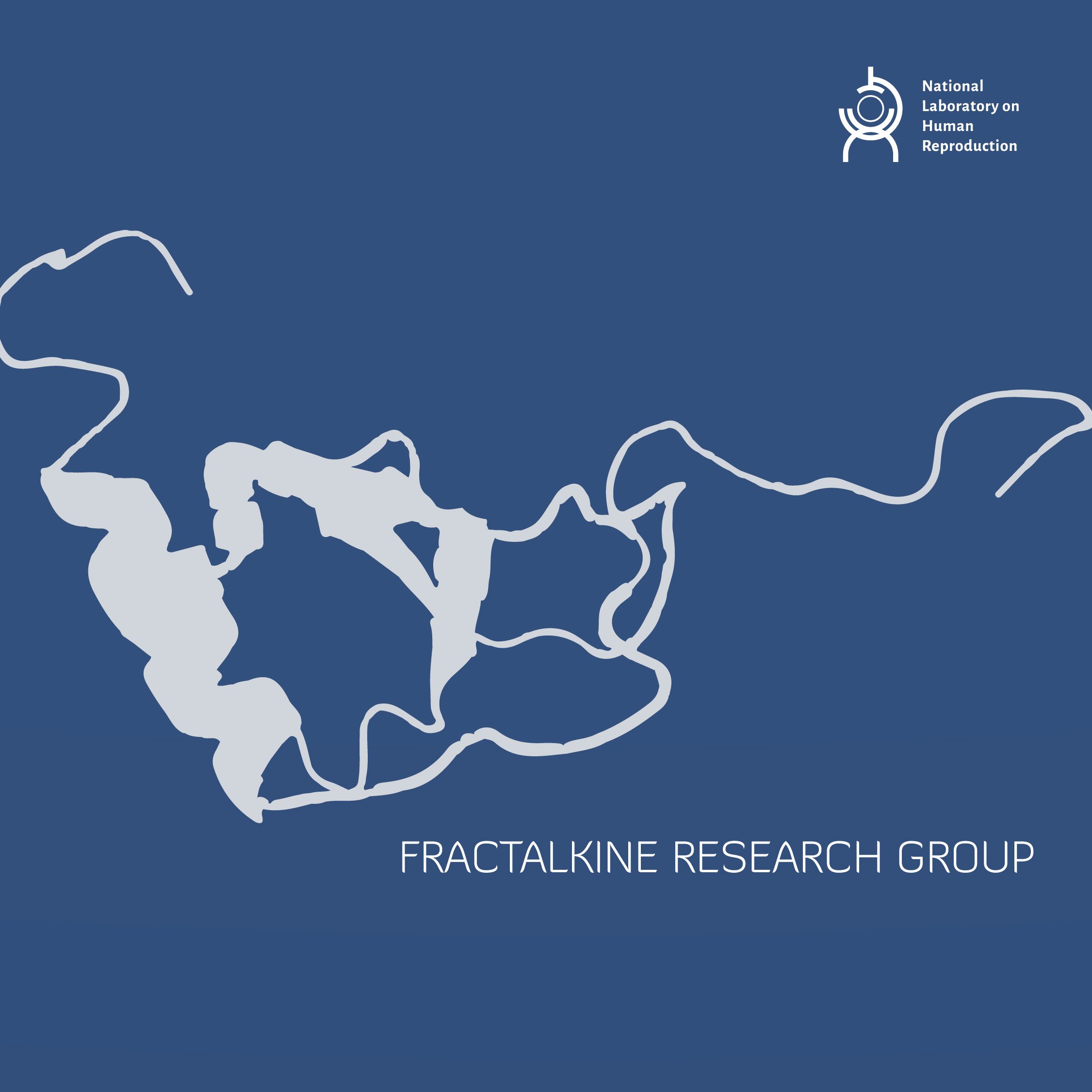Fractalkine research group

The main focus of the research is to investigate the effects of fractalkine, a chemokine, on the regulation of endometrial cell and trophoblast cell receptivity, invasion, implantation, and iron metabolism.
Fractalkine plays a role in the processes mentioned above through the regulation of several signaling pathways via the fractalkine receptor.
Our studies are performed on endometrial monocultures and bilaminar and 3D cultures of endometrial trophoblast cells using several models. One of our systems models the irondeficient state of the endometrium, and the other is the iron overload state. We also investigated the effect of substances secreted by macrophages with an inflammatory phenotype (M1) on endometrial cell function in a so-called non-contact co-culture.
Our results highlighted the multifaceted effects of fractalkine:
• The fractalkine-fractalkine receptor interaction regulates the production of the transcription factor SOX-17, which is involved in receptivity, via the progesterone receptor.
• Iron is transported from endometrial cells in both free and heme forms. The latter process may also involve the release of haptoglobin by endometrial cells.
• Fractalkine influences the production of inflammatory cytokines by macrophages, which play an essential role in the development of receptivity.
• Compounds released by inflammatory macrophages enhance endometrial cell division, increase antioxidant protection, and increase the amount of matrix metalloproteinases required for invasion.
• Compounds released by inflammatory macrophages also increase endometrial cell production of cytokines and fractalkines.
• Fractalkine is able to increase the expression of genes responsible for receptivity in iron deficiency.
• Fractalkine maintains iron transport in half of trophoblast cells in iron deficiency.
• Fractalkine increases the antioxidant capacity of endometrial and trophoblast cells and reduces the production of reactive oxygen species, protecting against oxidative stress.
Our research results suggest that altering fractalkine levels may contribute to successful implantation due to its ability to positively influence the expression of genes and proteins involved in receptivity and implantation. It also plays a vital role in the regulation of maternal iron metabolism and the maintenance of iron transport to the embryo in irondeficient states. This proposes that fractalkine could be a potential biological marker and drug target.
For more information and details, please visit our website.
